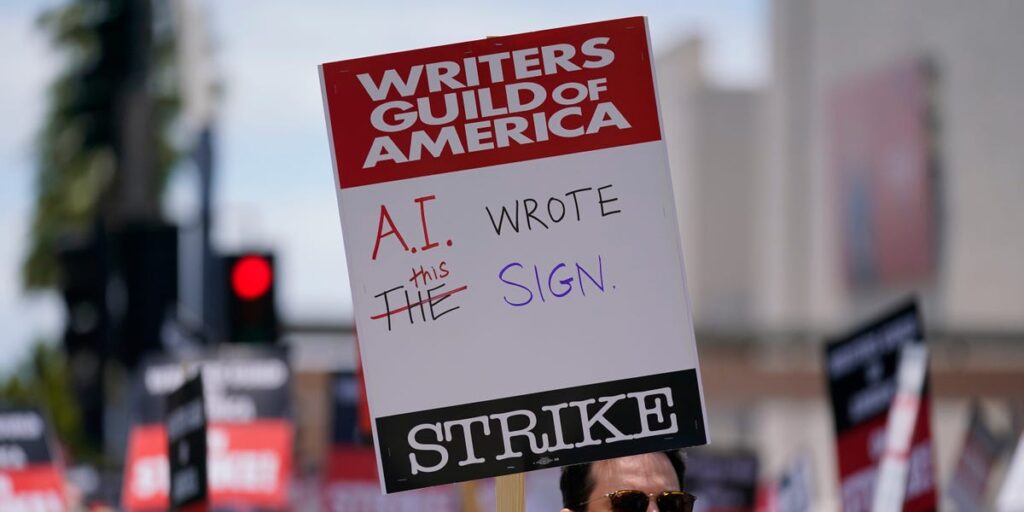- A cinematographer spoke to BBC News about his struggles for work since the Hollywood strikes.
- Michael Fortin said his drone company has been hit hard since the strikes last year.
- Fortin said he now worries about affording just a $5 meal at McDonald’s.
A veteran cinematographer told the BBC that a difficult year has left him worrying about affording even a $5 McDonald’s value meal.
Michael Fortin, who has credits on TV shows such as “NCIS: Los Angeles,” “The Grand Tour,” and “SEAL Team,” runs the drone cinematography company CineDrones, according to his LinkedIn profile.
Fortin told the BBC that his drone company operated almost every day before the Hollywood writers’ strike, which ran from May until September 2023.
After actors also went on strike from July 2023 and productions ground to a halt, work dried up.
In the year since the strikes ended, Fortin said he has flown drones for only 22 days and worked as an actor for just 10 days.
As the money became tighter, Fortin was evicted from his home in Huntington Beach, where he lived with his wife and two children, before moving to an apartment in Las Vegas — which they are also about to be evicted from, per the BBC.
“We were saving to buy a house, we had money, we had done things the right way,” Fortin said. “Two years ago, I didn’t worry about going out to dinner with my wife and kids and spending 200 bucks.”
“Now I worry about going out and spending $5 on a value meal at McDonald’s,” he added.
The writers’ strikes lasted for nearly 150 days and resulted in the Writers Guild of America securing minimum pay increases and improvements to residuals.
But the industry as a whole has suffered, with fewer shows being ordered and budget cuts.
The total number of productions filmed in the US was down 37% in the first half of 2024 compared to the same period in 2022, according to data by tracking company ProdPro.
The number of workers employed by California’s creative economy fell by 70,840 in 2023, with film, TV, and sound sectors accounting for 59% of those lost jobs, according to an Otis College of Art and Design study.
Even as the industry moved into 2024, crewmembers say work remained scarce.
One LA-based location manager who was out of work for seven and a half months during and after the strikes told The Hollywood Reporter in March that there hadn’t been “any real work.”
“The industry is not back. What’s back is a few things that are doing pickups or needed to restart from things that were shut down before May,” they said.
A set decoration buyer added that they could “count on two hands” how many people they knew that were working at that time.
But Duncan Crabtree-Ireland, the national executive director and chief negotiator with the Screen Actors Guild union, told the BBC that he was hopeful that production would pick back up soon.
He said Hollywood “always thinks it’s in crisis.”
“It is a town that constantly faces technological innovation — all kinds of change — which is part of the magic. Part of keeping content fresh is everyone having the idea that things don’t always have to be the way they’ve been,” he added.
Fortin, meanwhile, acknowledged that “things are coming in little by little.”
“Hollywood gave me everything,” he said. “But it feels like the industry has turned its back on lots of people, not just me.”
Representatives for Michael Fortin and CineDrones did not immediately respond to BI’s request for comment sent outside regular working hours.
Read the full article here


